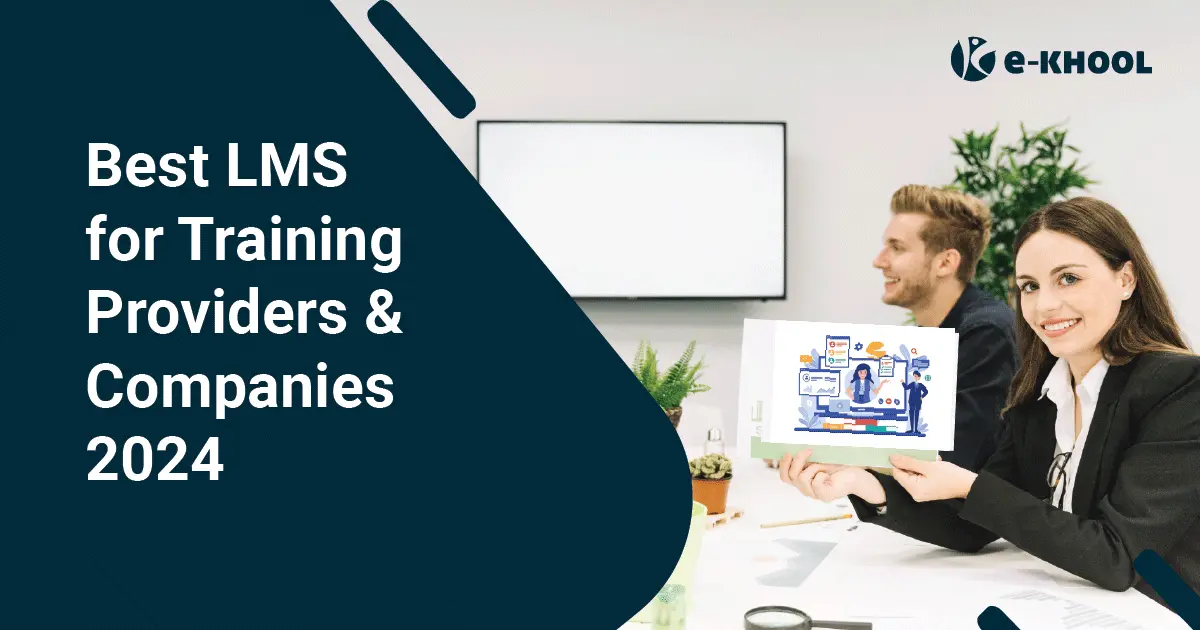Best LMS for Training Providers and Companies 2026
In the evolving digital world, selecting the best Learning Management System (LMS) is essential for training providers and businesses looking to offer high-quality experiences. Let’s see the challenges faced by the organizations, how it is overcome by training and role of LMS in training and how to choose the best LMS in this below article.
Let's get a deep look into the article as quick overview
What are the challenges faced by training provider companies?
Corporate organizations face a multitude of challenges in training as they navigate the evolving landscape of professional development. One of the primary concerns is adapting to technological advancements, ensuring quality assurance and meeting industry compliance.
Addressing skill gaps within organizations, fostering learner engagement, sourcing qualified instructors, and creating budget-efficient training programs are additional challenges that training providers must tackle. These challenges are compounded by the need to adapt to LMS.
What are the challenges faced by trainers?
Engaging learners who are used to traditional face-to-face training situations is one of the main issues. Another crucial issue is determining how effective training is. To assess the effectiveness of their programs and show return on investment, training providers need to set up metrics and collect data.
Another challenge is ensuring data privacy, particularly in light of the growing significance of legislation like the GDPR that protects personal data. Resistance to onboarding people onto a new system is common, underscoring the necessity of thorough training and support systems.
How can training providers overcome these challenges?
Training providers can use a variety of tactics to get beyond the obstacles that come with putting in place a Learning Management System (LMS). Gamification, personalised learning, skill gap analysis in the LMS helps the trainer to monitor and track the performance of learners or employees and helps them to identify the point needed to be focused more.
Why do the Training Providers need an LMS Solutions?
Choosing LMS for Training Companies that are easy to use and have simple navigation and intuitive interfaces is one way to overcome technological obstacles. Proactive maintenance, comprehensive testing before full rollout, and strong IT support are essential for a seamless operation.
To improve the learning process and expedite the delivery of instructional programs, training providers need Learning Management System (LMS) solutions. To put it simply, an LMS for Training Programs is a vital tool for training providers trying to offer scalable, effective, and high-quality training programs.
How Learning Management Systems are Assisting Training Companies
Corporate organizations are undergoing a revolution thanks to Learning Management Systems, which provide a comprehensive platform in training their employees. Trainers can analyze program performance and track employee development through reports and analytics.
Moreover, Learning Management Systems foster an environment of interactive training and growth. To put it simply, Learning Management Systems (LMSs) play a crucial role in the operational success of training firms by enabling them to provide training solutions that are scalable, effective, and of high quality.
Also read: How to automate corporate training with online learning software?
LMS for Consultants - An Effective Learning Management System for Your Client Needs
An LMS for consultants enables them to provide efficient, structured, and impactful training programs, enhancing their clients' knowledge and operational success.
ekhool.com
Best LMS for Training Providers 2026
The cutting-edge, AI-integrated e-KHOOL LMS, which offers a full suite of over 100 features for the creation, delivery, and management of educational content to schools, universities, corporations, and training academies, is one of the top learning management systems (LMS) for training companies in 2026.
Still lets see the list of top LMS companies in 2026,
e-KHOOL LMS:
A comprehensive cloud-based SaaS platform that offers a secure and customizable learning management system. It is suitable for a wide range of segments including employee training, K-12, vocational training, and higher education. The main features include AI-assisted online learning, virtual exam halls, supports live sessions, advanced LMS features, and is compatible with 10+ global certifications.
CYPHER Learning:
A generative AI-driven platform with Copilot and AI 360 features that expedites the production of courses and improves learning. It provides automation, system integration, and a learner interface that can be customized.
TalentLMS:
A cloud-based learning management system (LMS) featuring gamification, a wealth of course administration features, and integrated video conferencing technologies that supports blended learning. The system is designed to be simple and easy to use.
Absorb LMS:
With an emphasis on an easy-to-use interface, comprehensive reporting, and analytics tools, this platform leverages artificial intelligence to streamline administration and increase learner engagement. Additionally, an integrated eCommerce module for course sales is provided.
iSpring:
Acknowledged for its prompt assistance and strong course creation features in PowerPoint, iSpring Learn provides comprehensive reporting, performance evaluation, and a mobile application for on-the-go learning.
Docebo:
Docebo is designed specifically for corporate settings and offers gamification, certification management, and real-time reporting. It allows for deep customisation and external application integration.
D2L Brightspace LMS:
D2L Brightspace, a well-known provider of competency-based education and analytics, is a versatile learning platform that has an adaptive design for all devices and automated intervention tools.
Blackboard Learn LMS:
provides an extensive array of features for online instruction, such as customized architecture, interaction with student information systems, and course management. It is compatible with both asynchronous and synchronous learning settings.
Canvas LMS:
Offers a basic LMS version that is free for teachers, enabling the creation of courses, homework, tests, and connectivity with outside applications. Personalized learning pathways and user interaction are highlighted.
Moodle LMS:
An open-source learning management system (LMS) with support for progress tracking, language support, assessments, collaborative tools, course management, and mobile compatibility. Due to its versatility and large range of customization possibilities, it is commonly utilized.
In conclusion, e-khool Learning Management System has garnered positive reviews for its AI-integrated platform.. The overall satisfaction rate is high, with users recommending e-KHOOL LMS for its comprehensive and unique features that stand out in the competitive market of e-learning solutions.
Frequently Asked Questions
Personalized Learning Paths for Every Team Member
Contact Support

